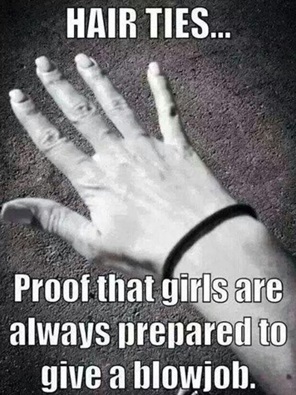
Editor’s note: I personally wouldn’t have posted the image. But I do feel the discussion is more important than deleting a “mistake” on the part of the individual who posted it. We’re a community, and we can and must be able to discuss hard issues or questions with kindness and honesty, both—not just one or the other. The urge to delete anything offensive is understandable, and there are certainly instances where appropriate. ~ ed.
“If you are neutral in situations of injustice, you have chosen the side of the oppressor. If an elephant has its foot on the tail of a mouse and you say that you are neutral, the mouse will not appreciate your neutrality.” ~ Desmond Tutu
~
I have been working as an editor for Elephant Journal for about a month.
I started out as a member of the Elephant Journal Academy, and then when they announced they were hiring, I seized the opportunity and applied.
Becoming a part of the Elephant team has been nothing short of amazing. It is an open-minded, welcoming, thoughtful, mindful, supportive, and fun work environment, the likes of which I have rarely encountered.
Even though I am one of Elephant’s biggest fans, that doesn’t mean that I agree with everything Elephant publishes or every decision my fellow editors make. And I don’t have to.
One of the most valuable things about Elephant is that it encourages dialogue, permits differences of opinion, and welcomes apprentices, readers, writers, and editors to (mindfully) challenge Elephant when it publishes controversial content.

This meme was recently posted by an Elephant Academy apprentice on “elephant journal gets sexy,” one of Elephant Journal’s Facebook pages.
The meme quickly resulted in a flurry of reactions and angry comments from readers, as well as a few comments defending the meme. Many readers were appalled, felt that Elephant Journal had crossed a line, and threatened to unlike or even report the page. Elephant Journal responded by keeping the meme on Facebook, while stating that they were doing so to foster dialogue about these issues.
The page “elephant journal gets sexy” was created to share mindful, funny, sexy content to Elephant readers, and typically that is exactly what it does. But last week, with the publication of this meme, Elephant Journal totally missed the mark.
Here are some of the comments that were posted by readers:
“These posts are sliding dangerously close to misogyny & rape culture. Up your game EJ.”
“Really??? That’s not sexy, it’s just kind of high-school jock, denigrating-to-women-type, not-funny humor. From Elephant Journal, I expect better.”
“Ummm or not! How about proof that it’s hot and I gotta get my hair off my neck. Or proof that I’m going to the gym. Or proof that it’ll be used for anything other than a BJ! Poor choice Elephant Journal.”
There were also several readers who came to the defense of the meme:
“How about everyone pulls their panties out of their vagina and if you can’t take a dick at least learn how to take a joke”
“Holy shit ladies. Get a grip on yourselves. Suck a dick, you might like it”
“Of course people manage to take offense. If you can’t handle elephant journal GETTING SEXY why the heck are you here?”
(The last two comments were both “liked” on Facebook by Elephant.)
First off, no one was horrified by the meme because it was “getting sexy.” Sex is great. Oral sex is great. There is nothing inherently offensive about blow jobs. They can be wonderful and enjoyable for men and women, as long they are consensual. The meme is not offensive because it contains sexual content. The meme is offensive because it contains misogynistic sexual content.
The meme takes an everyday object (a hair tie) and makes the claim that women use it only when tying their hair up to perform blow jobs. It implies that hair ties exist exclusively for the purpose of pleasuring men.
It also implies that women are always prepared to give a blowjob…no wait, I got that wrong—it actually says that women “are always prepared to give a blowjob.”
Let’s start with the fact that women are multi-dimensional, intelligent creatures with minds of their own. Let’s continue with the fact that women live out their entire lives with purposes other than pleasuring men. But I shouldn’t even have to say these things, so let’s move on…
Let’s also clarify that women are not “always prepared to give a blow job.”
Right now, while writing this article, the last thing I would like to do is give a blow job. An hour ago, when I was eating dinner, I would have definitely passed up a blow job for pasta. In fact, 99 percent of the time I have zero interest in giving a blow job. That other one percent is awesome and fun, but I think we are all fairly clear on the fact that “one percent of the time” is different from “always.”
It is also important to note that this meme is offensive not only to women, but specifically to nonheterosexual women. Many women are not only attracted to men. Some women are not attracted to men at all. Some women are not attracted to anyone at all. So, by saying that women “are always prepared to give a blow job,” we are automatically being exclusionary and promoting heteronormativity. Online sex and dating content is heteronormative enough as it is. Let’s not contribute to it by unnecessarily sharing more.
Some of you may be thinking: It’s just a joke. People need to stop getting so offended all the time. What’s the big deal?
Great question. I’m glad you asked.
From the Trump presidency to the Black Lives Matter and #metoo movements, debates have raged across the country over the pros and cons of upholding political correctness as a standard in our society. According to the Cambridge English Dictionary, “politically correct” is defined as “avoiding language or behavior that any particular group of people might feel is unkind or offensive.”
That sounds pretty damn good to me.
But many in the United States (and around the globe) have argued that political correctness is being taken too far. One such person is the man who now sits in the White House as the “leader of the free world.” In 2015, at the first Republican presidential debate, Trump said the following:
“I think the big problem this country has is being politically correct. I’ve been challenged by so many people and I don’t, frankly, have time for total political correctness. And to be honest with you, this country doesn’t have time either.” (NPR)
Trump has shown us time and time again that he lives by this belief. The list of his racist, ethnophobic, islamophobic, homophobic, and sexist comments is endless. Here’s a reminder of the 2005 “Access Hollywood” conversation between Billy Bush and Donald Trump:
Trump: You know, I’m automatically attracted to beautiful—I just start kissing them. It’s like a magnet. Just kiss. I don’t even wait. And when you’re a star, they let you do it. You can do anything.
Bush: Whatever you want.
Trump: Grab ’em by the pussy. You can do anything. (New York Times)
In response to these words by our now-president, many came to his defense by saying that it was just “locker room talk” and that everyone should stop being “so sensitive.”
As someone who has experienced sexual harassment countless times (like many women), the widespread existence of misogyny and sexual objectification is painfully clear to me.
As a survivor of sexual assault, I am all too familiar with the devastating effects these forces can have. And all of these acts of sexual violence start with the ways we talk about gender and sexuality. Suggesting that women are “always” available for sex with men perpetuates many of the cultural beliefs that lead to sexual harassment and assault.
How we talk about sex matters.
How we talk about women matters.
Anything that turns women into objects that exist for the pleasure of men should be condemned, not dismissed as “locker room talk” or “just a joke.”
Political correctness does not exist to filter every little thing we say. Political correctness exists as an act of civil rights. It exists as an act of dissent. It exists to help us call out the wrongs we need to right.
We are human. We all make mistakes. Sometimes we post or say or write something that we find amusing, only to realize that it is offensive or degrading to someone else. And while it is important to make every effort to avoid saying anything sexist, racist, homophobic, or offensive, what is often just as important is how we respond once we have done so.
Elephant Journal has said that the meme was not posted with the intent of offending anyone. However, we have not come forward to acknowledge outright that the meme is offensive and should not have been posted in the first place. Elephant has also not done the most important thing, which is to remove the post from Facebook.
The meme is still live, free to be shared, liked, and spread around the internet.
Although deleting the meme won’t erase the fact that it was posted in the first place, it would demonstrate that we have taken the offensiveness of the post seriously and do not support this kind of content.
Elephant has made the argument that it is valuable to keep the meme up to leave the post open for discussion. But the fact is that lessons can be learned and discussions had while simultaneously admitting our mistake and removing the content from our site.
Let’s take the example of a controversial Pepsi commercial that aired last year.
In April 2017, Pepsi aired a commercial featuring Kendall Jenner joining a protest and handing a police officer a can of soda, thereby relieving the tension between the cops and protesters (The Independent).
The commercial faced immediate backlash, as viewers felt that it commercialized, disrespected, and trivialized the Black Lives Matter protests. Pepsi soon pulled the commercial, removed it from YouTube, and released the following statement:
“Clearly, we missed the mark, and we apologize. We did not intend to make light of any serious issue. We are pulling the content and halting any further rollout.”
Pepsi deleted the video, apologized to viewers, and learned a valuable lesson. They admitted their wrongdoing. They took a stand. If they had continued to air the commercial, no one would have trusted their apology—and rightfully so.
Elephant’s core motto is to “be of benefit;” everything published by Elephant Journal is done with the intent of being of benefit to the reader, to society, or to the planet. I know that every Elephant editor takes the responsibility of mindful, ethical journalism seriously. However, in this instance, Elephant missed the mark, and in doing so, alienated many of its readers.
I love Elephant. I love its mission, its staff, and its core values…but I don’t, frankly, have time for jokes that promote misogyny and heteronormativity. And to be honest with you, this country doesn’t either.
To conclude, here is a list of things I use my hair tie for:
>> Doing yoga
>> Eating pho
>> Riding a bike
>> Washing my face
>> Running
>> Eating burritos
>> Lifting weights
>> Neck massages
>> Brushing my teeth
>> Hiking
>> Cooking
>> Putting my hair up so that it’s out of my way while I deconstruct sexist jokes and challenge misogynistic, heteronormative views in order to chip away at the patriarchal, heterocentrist foundations of our society
~


Read 12 comments and reply